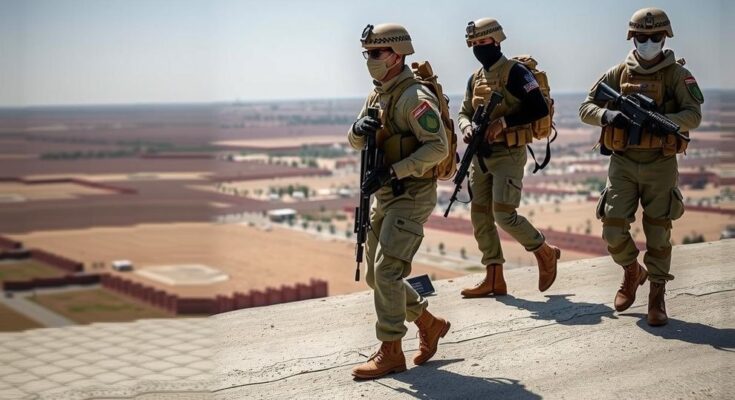Israeli soldiers are facing heightened legal risks internationally, exemplified by a recent case in Brazil where a soldier fled to avoid war crime allegations. The Hind Rajab Foundation has initiated investigations against various soldiers, claiming violations under international law. This situation has sparked political controversy in Israel, as officials debate the accountability of service members in the context of their military actions in Gaza.
Israeli soldiers are increasingly facing potential legal repercussions abroad following allegations of war crimes committed during their service in Gaza. A recent incident involved an Israeli soldier who fled Brazil after a lawsuit, backed by the Hind Rajab Foundation (HRF), accused him of orchestrating large-scale demolitions of homes while serving in Gaza. This complaint prompted a Brazilian judge to initiate an investigation into the soldier’s actions under international law, specifically the Rome Statute, which obliges signatory nations to investigate serious crimes such as war crimes and crimes against humanity.
The HRF aims to combat perceived Israeli impunity, drawing attention to victims of conflict in Gaza, notably highlighting the tragedy of 5-year-old Hind Rajab, who was killed by Israeli fire. Correspondingly, the Israeli Foreign Ministry has taken measures to ensure the soldier’s safety and warned citizens about the potential ramifications of their social media activity related to military service.
Furthermore, the HRF is not limited to incidents in Brazil; it has pursued legal actions against Israeli soldiers in several countries, including Thailand, Sri Lanka, and Chile. Although claims have been raised, no soldiers have been arrested as a direct result of these cases. This emerging international legal pressure has incited political turmoil in Israel, with prominent figures attributing blame to the governing administration. Opposition leader Yair Lapid pointed out the implications of the situation as a significant failure of governmental function.
Additionally, Foreign Minister Gideon Saar defended the ongoing scrutiny as part of a broader anti-Israel campaign that undermines the country’s right to self-defense. The issue has resonated with local advocacy groups, such as “Moms Up,” which has called for governmental accountability in ensuring legal protections for soldiers. As international scrutiny mounts, the Israeli parliament’s Foreign Affairs and Security Committee is set to address these concerns, examining measures to protect soldiers from potential legal actions abroad.
The landscape of international law concerning war crimes has increasingly intersected with the activities of soldiers involved in conflicts such as that in Gaza. The growing trend of lawsuits against military personnel in foreign jurisdictions raises significant legal and diplomatic questions. Organizations like the Hind Rajab Foundation are leveraging international legal frameworks to initiate investigations and seek accountability for actions during military service, signaling a shift in how former military members might navigate their legal responsibilities after active duty. The implications of these actions not only affect individuals but can also strain relations between Israel and countries that entertain such legal claims.
In summary, the increasing legal threats faced by Israeli soldiers abroad, particularly highlighted by the recent case in Brazil, underscores a complex interplay between military service and international law. The response from Israeli officials indicates a recognition of this evolving legal landscape, emphasizing the need for protections for service members. As advocacy groups continue to target soldiers with allegations of misconduct, the political ramifications in Israel are likely to intensify, prompting further discourse on national and international legal frameworks.
Original Source: www.cnn.com




